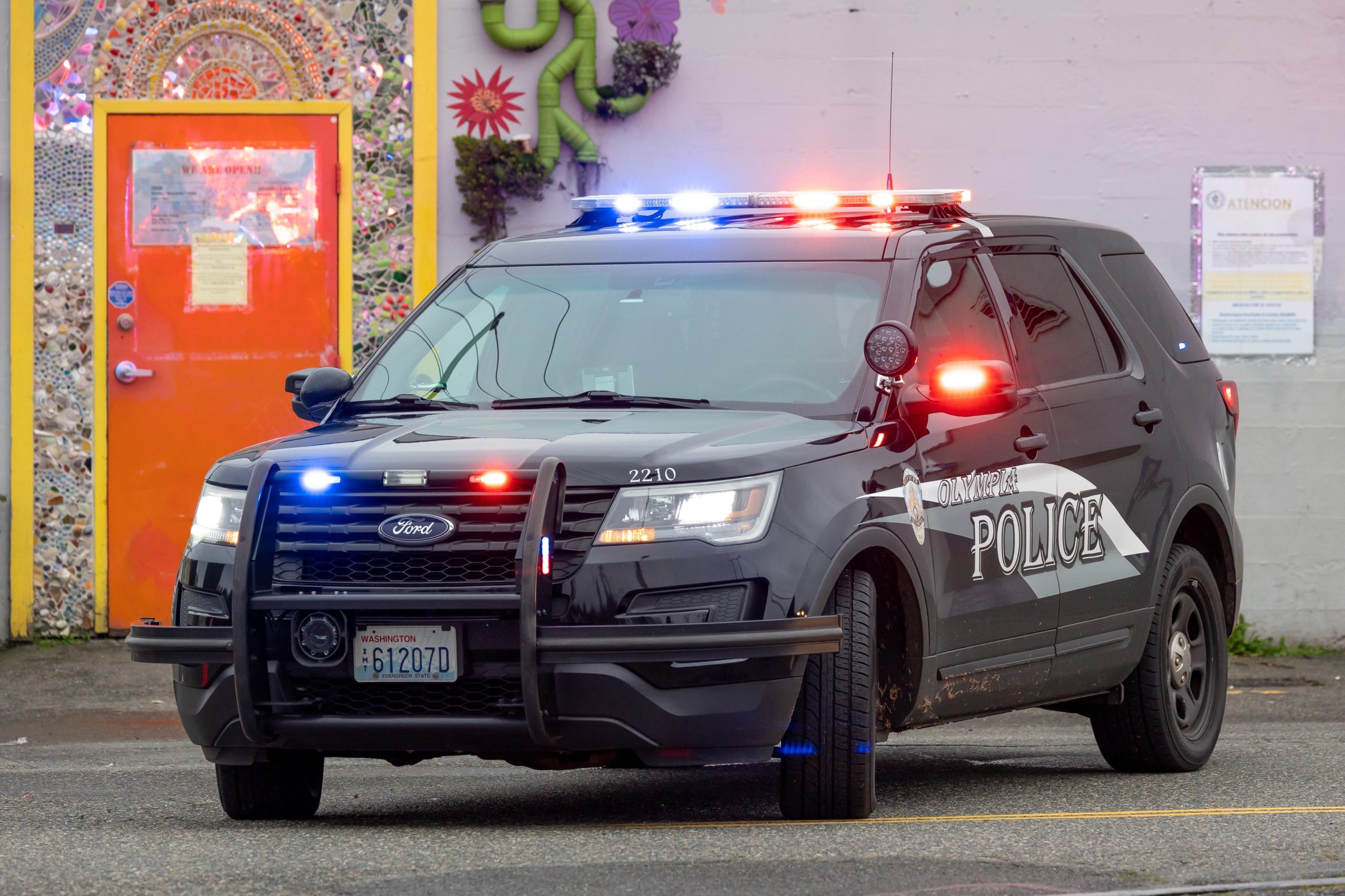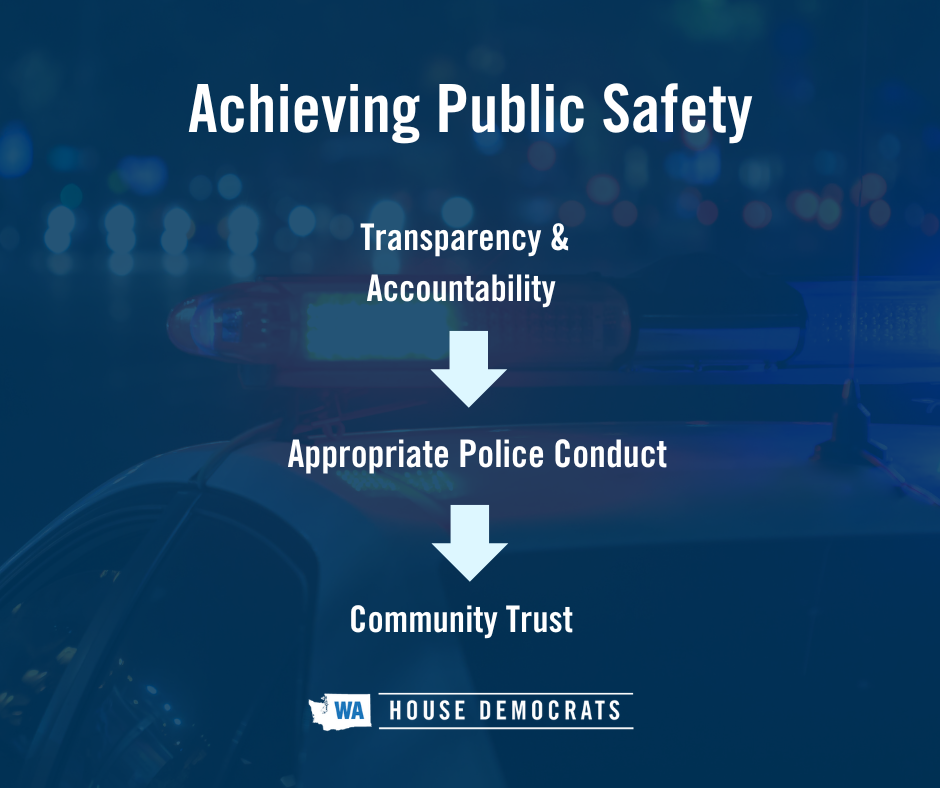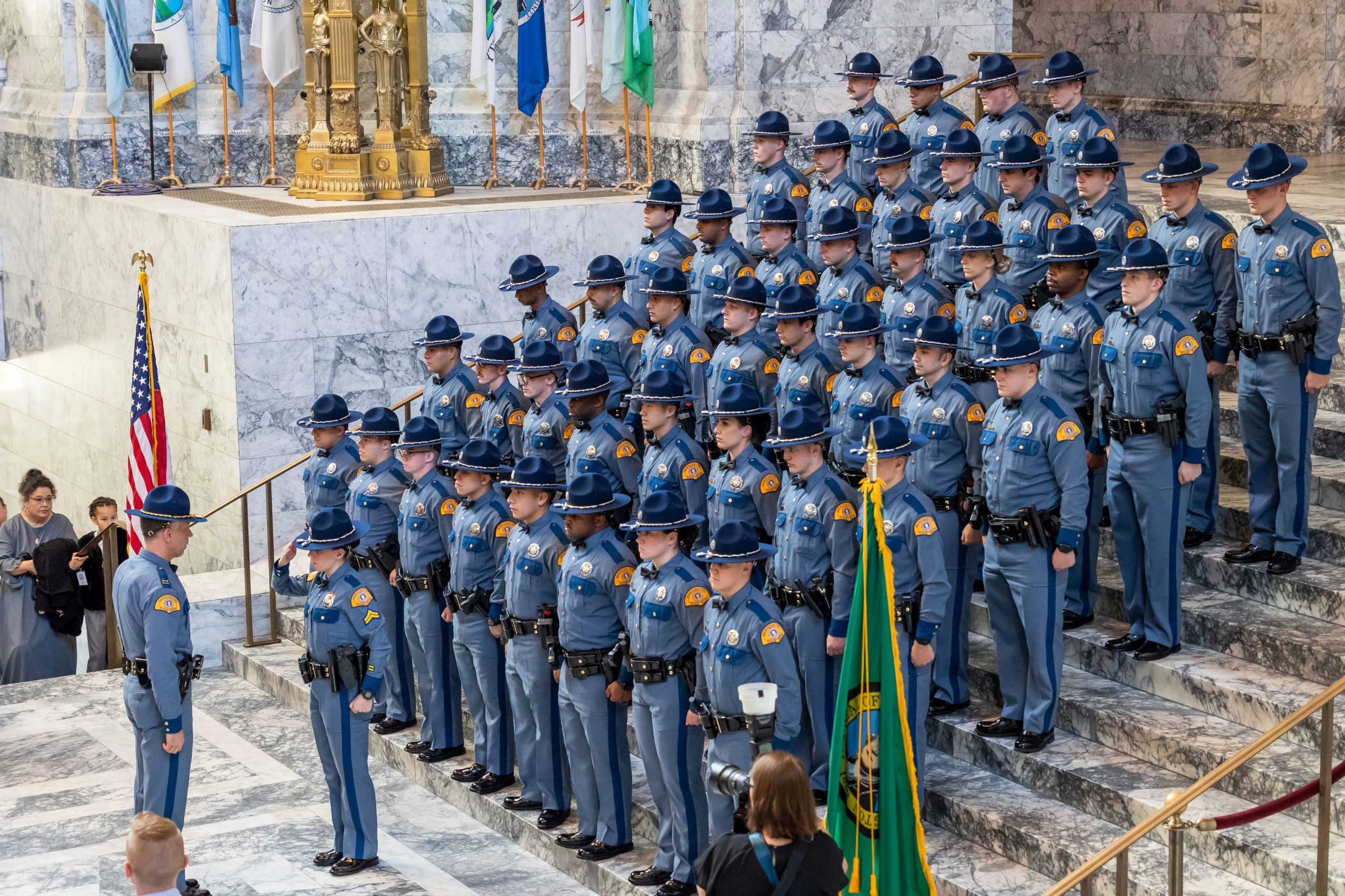Dear neighbors,
Over the month of September, many members of our community reached out to me with concerns about community safety and the future of policing. These are difficult conversations but are necessary and critical to the future of our community and state. So, I’d like to take some time to share where these concerns may be rooted, the legislative work we’ve achieved to begin to address these issues, and where we go from here.
The Issue at Hand

In 2022, our state recorded the lowest number of police officers per capita at 1.36 officers per 1,000 people. The national average is 2.31 officers per capita, which would result in 7,500 more officers than currently available in Washington. This puts our state last in staffing for the 13th straight year.
Simultaneously, violent crime increases have hurt many of our neighbors and diminished the resiliency of communities. To complicate matters, as efforts to increase staffing and training of officers are underway, trust in police has been shaken by incidents of misconduct. We must address the fundamental approach we take to policing.
While our community is fortunate to have local officers who embody what it means to be a public servant and are well trusted across our district, other communities across Washington are reeling from the hurtful comments of a Seattle Police Officer after another officer hit and killed a 26-year old student. In Tacoma, the trial has begun for three Tacoma officers charged in the death of Manny Ellis. Last month, the memorial of Timothy Green, who was killed by Olympia Police Officers during a behavioral health crisis last summer was underway. They and countless others should still be alive.
Looking For Change in Our Community
We have a common goal. We want police present in the community, and a relationship based on mutual respect, trust, and transparency. Everyone wants to feel safe in their homes, public spaces, and at local businesses.

Our police are guardians of the community, so they should be reflective of us and the populations they serve. The last three legislative sessions have resulted in meaningful policy and funding, but they will take time to implement. We are fortunate in our district to have local police forces that are responsive to our needs, but we need statewide standards for policing that serve us all.
In 2021, the legislature worked with diverse communities to pass legislation prohibiting conduct that does not meaningfully protect people. We also worked to create the Office of Independent Investigations to give families a neutral forum to address violence. To reduce the risk of violence, the legislature further supported de-escalation and a standard of reasonable care when officers use force.
The legislature further supported law enforcement with $189 million in the 2021-2023 biennial budget, and an additional $215 million in the 2022 supplemental budget. This included increased funding for recruitment and training with $14.5 million invested in Basic Law Enforcement Academy classes and local law enforcement training. Another $2.5 million was provided for law enforcement wellness programs. Additionally, $13.6 million will be spent to expand behavioral health response, alternative response, and mobile crisis response teams, with another $22 million provided for domestic violence and sexual assault response. By the end of the 2022 legislative session, community partners and police departments felt confident that our legal system had made important progress on becoming more balanced, fair, and accessible.
By 2023, local police had reached out seeking greater authority to pursue suspects and issue arrests. We must give first responders the tools they need to keep us safe. The legislature eased restrictions for vehicle pursuits. In addition, we focused on recruitment efforts with the establishment of regional training centers across the state to provide greater volume for certification of officers and train cadets to serve locally in their community.

Finally, the legislature expanded efforts to address the behavioral health crisis. Our approach recognizes that we have grown reliant upon police to answer every kind of crisis in our lives. Domestic violence, behavioral health, and substance use disorder calls should be answered by teams that are specially trained to help people experiencing these interactions. For behavioral health related calls, resources such as the 988 suicide and crisis lifeline, Designated Crisis Responder’s, Health Engagement Hubs, and diversionary programs will play a meaningful role in addressing the root cause of the crisis and providing law enforcement with staffing capabilities to respond to other calls. Locally, the Kirkland Behavioral Health Crisis Center will provide dedicated behavioral health crisis care resources to 14,000 individuals each year.
Looking Ahead
We all deserve to feel safe in our community. For many Washingtonians, especially our most vulnerable populations, this isn’t the case. We can and should do better. We’ve made a lot of progress on policing, but more work must be done.
I am always happy to hear your thoughts on community safety and other issues that matter most to you. Please don’t hesitate to email me and stay in touch!
In Service,

State Representative Amy Walen
48th Legislative District
